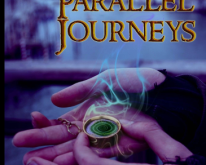A major life problem I have is that I can’t stand small talk, and given a space of communication with another person of longer than fifteen seconds I will typically break the implicit rules of social etiquette by trying to go too deep and create a conversation where something life-changing is at stake. This tendency can create some interesting and developmental outcomes, but also can polarize, offend and create immunological reactions in many people.
As Aleister Crowley said, “If I tell a man something he is not ready to hear, it is the same as if I told him a lie.” I do that constantly. I am often good at having an intuition about something that is really at stake with a person, but I lack the feeling-toned sensitivity to locate what that person, at a given time, is ready to hear. As much as I’ve known this about myself for many years, I can’t seem to stop myself from doing it.
Last summer I wrote about why I get myself into this sort of trouble in an email to a friend,
…one reason why neither of us can stand small talk with personal types is because they live in flatlands, they live out of the claustrophobic delusion that there is one layer of reality, the one they think they are talking about, and to try to engage with such a flattened point of view involves an almost unbearable shrinking process. It’s just too narrow a reality tunnel. It’s like such people are implicitly asking, almost demanding,
“Would you mind joining me in this cardboard toilet paper tube that I live in? If we walk together in here it will spin and go nowhere a little faster.” And when you don’t want to, you can feel guilty, or snobby or elitist or harshly judgmental or something, but the truth is that cardboard toilet paper tubes are really just not an adequate place for either of us to hang out in for very long. And there are all sorts of other miniaturized folks that will happily spin around in various cardboard tubes with them. I know this analogy might seem very slightly arrogant and condescending, but it’s what I’ve felt for most of my life. In the moment, I’m not usually feeling pridefully superior, but suppressed, and claustrophobically oppressed by reality tunnels that are too small for me.
A classic example are times in the distant past when I’ve made the mistake of smoking some weed in a group setting. One or two inhales and I can feel my mind and intuition widen, and time slowing in a highly desirable way, waiting for inner visions to fill in the opening space. Nowadays I don’t need THC to open that space, and feel out of patience with all the physiological noise and energetic costs of it when I can get the benefit it once produced without any substance. But in the past, THC would really light up my mind and intuition, only I would find, to my horror, if I imbibed in a group setting, that this precious space was being crowded by the mundane thought forms of miniature folk who had imbibed the same medicine, or usually much more of it, and as a result they were chattering away about different strains of weed, or an amazing bong they used to have, or various other flat, threadbare, miniaturized thought forms that had no possibility of going anywhere except to bounce off of, like underpowered bumper cars, the dull, flat and irrelevant thought forms of other miniaturized folk.
In the rare circumstances that I find myself trapped in such claustrophobic reality tunnels I feel an intense inner oppression and rebellion and either have to get myself out of the situation (probably the best solution) or I will find a way to violate social norms and divert the conversation to where something intense is at stake for those involved.
Also, I will almost always rebel from and seek to get away from group conversations. Group conversations, except amongst exceptional persons, tend toward lowest common denominator factors and lack focus. They can be like watching a few people with ADD channel surfing at the same time—irrelevant non-sequiturs leading to other irrelevant non-sequiturs as the conversation wobbles and careens through a trashy landscape like an old drunk walking in circles with flies buzzing around his head. Talking to a group of people is usually frustrating because I sense the imprecision of it, as the way to say something, and what to talk about, should be different for persons A, B, C and D, but can’t be. So I am, and always have been, a one-on-one person. I can play host at times, or facilitate a group focused on something, but this is not my preferred mode. This is also because I am an introvert, and group socializing is the mode of extraverts.
I justify my tactics (though in many cases it is not justifiable—see the Crowley quote) based on my philosophy that story structure and life structure parallel. Classic story structure exists multiculturally because it parallels life structure and reflects the deep needs of human psychology. Stories are “equipment for living” as one thoughtful person put it. A good story has a compelling narrative drive, character development, interesting themes, an underlying mythology and vivid worldview. I consciously mythologize my life and that works for me. So when I get into a conversation with someone, preferably one-on-one, I find that instinctively I follow a story structure rule, one that I heard during a Bob Mckee screenplay writing seminar in the Eighties: “In every scene, something of high value must be at stake.” By an instinct I seem unable to resist, I want to go after the most intense, life-changing thing that could be at stake in the conversation. And I tend to do so, in the way I was brought up to communicate, through challenging Socratic dialogue which many people, who were brought up in cultures where small talk was the norm, find off-putting and offensive. Also, I want the Socratic dialogue to have the possibility of a life-changing outcome. If people want to talk about what’s happening with the Yankees, (aside from the fact that I don’t care about baseball, grew up a few subway stops from Yankee stadium and never sat through a game) there is also nothing at stake, because no matter what is concluded, it’s not going to change anything unless Yankee team members, coaches, managers or owners are present. In a high-stakes conversation the principles (in the legal sense of the key participants in a process) should be present, the people who are actually involved in, and are capable of doing something about the matter at hand. This does not have to be anything extraordinary. If someone is talking about the problem they are having in a key relationship, then I am talking to a principle, something of high-value is at stake, and we could reach conclusions that could significantly shift the situation.
Oh, and millennials please take note, this principle does not apply to talk about politics, which so many of you tell me pridefully is a subject, like baseball, too uninteresting and nonconsequential to pay attention to. If you can vote, if you pay taxes, if you are have college debt, if you are of drafting age, if you are breath-drawing hominid, then you are a principle when it comes to politics whether you realize it or not.
Also, the way people talk in stories, such as movies, cannot and should not be the way people talk in real life. It needs to sound like real life conversation, but must be several levels above it. Real life conversation is usually wordy, repetitious, and meandering. No one would put up with that in a novel or a movie. Therefore, I talk the way people do in stories and want other people to talk that way too. I want real-time dialogue to be at the level of an Aaron Sorkin screenplay dialogue. And yeah, I get it, most people are not capable of that, and most conversation is more about hanging out, keeping lines of communication open rather than breaking new ground. Real people and real life, IMHO, are vastly overrated. See: Real People Suck, an Imaginary Person’s Manifesto
It is so easy, especially if it accords with your essence (my name is Zap after all, so I can’t help but to “Zap” people) to default to your cultural conditioning even if you know that it is foreign, and potentially unacceptable, to many other people. I was raised in a highly intellectual, New York, Jewish family where high-vocabulary, aggressive Socratic dialogue was the normal means of discourse. My parents met outside an evening lecture they attended while they were both graduate students at Columbia University in the late 1940s. During their first conversation at a coffee shop in Harlem, my mom, who was a psychologist, challenged my dad, who was a microbiologist, about the principle of logic so often used in science—Ockham’s Razor, which says that “hypotheses should not be multiplied without necessity” or “the simplest explanation is the one most likely to be true.” “I don’t see the validity of that,” she said, “why should the simplest explanation be the one most likely to be true?” (I agree, and so did Jung who hated reductive “Nothing, but…” thinking.) The other topic she could remember them talking about was Einstein’s Theory of Relativity. A byproduct of this Socratic conversation was my conception some years later. Aggressive Socratic dialogue has been baked into the Jewish intellectual tradition for millennia and is especially apparent in the Talmud, a book of commentary in which rabbis debate points of ethics with each other across centuries. My grandfather was a Talmudic child prodigy in a Latvian village with no electricity. According to my mom, they had to stand him on a table so that when people came from other villages to witness this prodigy debate rabbis on Talmudic controversies he could be seen.
And, of course, I’ve inherited this ancestral desire to debate, and to stand on any tables I can find to be seen doing it. When I was thirteen, I joined the Bronx High School of Science debate team, which was, year after year, the number one debate team in the country. From the perspective of my conditioning, aggressive Socratic dialogue is how you express unconditional love. When you care about someone, are interested in them, want to help them them, of course, you relentlessly engage them in aggressive Socratic dialogue. How could it be otherwise?
No matter how many painful lessons I get that this is not normal for most folks, I still to this day, and moment, don’t really get it. When I respect someone else, then I instinctively want to talk to them the way I talk to myself in my own mind—relentlessly probing with aggressive Socratic dialogue to expose the core of things. For me, that sort of self-talk is fun, interesting, and rewarding. I frequently hear people talk about “wanting to get out of their heads” and to stop the inner monologue. I think they are trying to escape what Jung called “psychic entropy” (see: Dealing with Psychic Entropy)—an irritating barrage of looping negative thought forms, etc. But for me, most of the time, my inner monologue and thought process is fun, entertaining, brings me new discoveries, etc. so I don’t experience it as having this disturbing, aggressive edge that can be off-putting to others. For me, it’s as normal as breathing– it’s just what I do, how I was brought up, what I’m good at, and have to share with others. In writing, like I’m doing now, it seems fine, because people self-select what they want to read and can pass it by or withdraw from it the moment they feel it doesn’t serve them.
When this same tool is applied to people, one-on-one, in live situations and ongoing relationships, however, the results can be much more mixed. One way that it can work well for me is when I go to social situations—festivals such as Sonic Bloom and Arise, the National Rainbow Gathering, Burning Man, etc. and put out a sign that says, “Free Dream Interpretation and Oracle Readings.” Sometimes I get into festivals for free, or am even fed (thanks Sonic Bloom) to perform this service and/or teach workshops or give talks. For many years I’ve gone to parties and done this. When I go to coffee shops I set up my “Free Dream Interpretation and Oracle Reading” sign and a few people will engage my services and I get to introduce them to the Zap Oracle or I get to hear their dreams which give me insights into what is going on in the collective unconscious and sometimes that also allows me to give people key insights about high-stakes things in their lives. For me, this is an ideal form of socializing, because there is an implicit/explicit agreement that we can talk about the deep, high-stakes stuff. People who don’t want this, or would prefer a more warm and fuzzy oracle reading, etc. can usually sense from my vibe that I’m a highly unsuitable candidate to meet their expectations, and I can gratefully watch them pass me by.
If my vibe and tendency toward high-stakes conversation keeps opportunities for small talk and superficial social interaction away from me, my feeling is: so much the better. Since I find the conversation in my own head interesting, entertaining, and capable of breaking new ground, why should I replace that with same-old, same-0ld, he-said, she-said with someone else?
But where my tendency is troubling, and sometimes even heartbreaking, is with some people who I am interested in and who are interested in me, and who, at first at least, encourage my tendency to go for the deep, high-stakes material until I go too far, or where, when I am not even in their company, the cumulative effect of it becomes disturbing and they get polarized, have an immunological response to me, will sometimes think that I am an evil wizard that has gotten too far inside their head, and so forth. This has happened to me again and again and sometimes the results are unsettling. Sometimes that polarization comes after what seems like a breakthrough, or a series of breakthroughs, and may, in fact, be because of breakthroughs. Biological systems, and the human psyche (as both Freud and Jung observed) tend toward conservatism, homeostasis, that dialed-in equilibrium, and if you are a Zap, someone who tends to shock and disturb equilibriums, then you are going to be subject to polarizations and immunological reactions.
My intention is to help the other, as well as to satisfy my relentless desire to probe mysteries (and every person is a mystery). But the results I get (even though I warn everyone I am going to spend time with about this tendency, and ask them to tell me to back off) sometimes seem counter-productive. By going too far, I may unintentionally disrupt a delicate developmental process that needs to proceed more gradually. Fools rush in where angels fear to tread. Usually people don’t send the back-off signal until it’s too late. It’s not that I’m completely oblivious to social cues and body language in real time to indicate that I am creating resistance in the other. This polarization effect is most likely to happen with someone who encourages, sometimes lavishly encourages, my eccentric, mystery-probing tendencies. Typically the polarizations do not happen in real time, but are rather a cumulative after effect. No arguments lead up to it. It often happens after there seems to be progress, breakthroughs, intimate and authentic disclosures on both sides. It will tend to come when the person is not in my immediate company. They may be geographically separated from me by hundreds or thousands of miles when they discover that I am like a splinter in their mind that must be excised.
So this is my long-term predicament. As you can see from much of what I’ve written, in many ways I feel prideful, self-satisfaction in my tendencies, and often they serve me and others well (especially when expressed in writing or short-term consultations). Some people value this aspect and may become lifelong friends. But in other cases, there can be heart-breaking polarization effects.
I am very interested in feedback, and a few months ago started a thread on this same subject, but what I also can’t figure out is how much I am able or willing to change this. Perhaps the polarizations just come with the territory of being who I am and I have to accept the variety of outcomes. “Zap” is often associated with lightening which is a polarization phenomenon (and which often has destructive effects such as forest fires). Should I just keep doing what I do, or is there some way for me to develop a greater feeling-toned sensitivity about what others are ready to hear so that progress can proceed more gradually?
 ZapOracle.com home to the free 720-card Zap Oracle
ZapOracle.com home to the free 720-card Zap Oracle







I’m wondering if you’ve had your Human Design chart done? Knowing my design has put me at ease in these sorts of situations or at least to just take some sacred space for myself, ie GET OUTTA THERE… haha 🙂 I can give you a basic reading if you like, I’m just getting into it and love to share what I see. Thank you for all you share here!
AND… we are out there… the people who love the high-level intense conversation and storytelling. There are those moments when someone takes a risk to be more real and I always appreciate the effort and the synergy that results. I imagine it’s a matter of not wasting your breath on someone who is going to be repelled by your beautiful musings, I think you have said as much in your post.
‘Should I just keep doing what I do, or is there some way for me to develop a greater feeling-toned sensitivity about what others are ready to hear so that progress can proceed more gradually?’
I think that the answer to this question lies in the personal decision to be a Humanist. (Bear with me, this isn’t going to be succinct.) In didactic communication especially, we have the opportunity to interrupt normative discourse by providing a new example of relatedness. Alternative ideas/values/social practices can be communicated if both people have a feeling sense of where the other is standing- it shows us where to begin the language-based bridge and to track how well the the connection is holding. But it’s tricky because this type of relating is filling our deepest social void, and sometimes that void isn’t felt until it is probed. It’s painful. It’s the quintessential suffering (which can be an incredible gift, but probably feels more like assault). For those of us who have the potential and the inclination to poke around in the unconscious (you wrote something about each person being a mystery), then proceeding with a feeling-based empathy becomes a moral consideration. It is literally a choice. A Humanist would be more concerned with being sensitive to respecting power differential and levels of freedom. I consider myself a Humanist in my professional and social roles; however… not in my personal relationships (unless someone is in trauma). So, if I am either sexually attracted to another person and/or interested in developing truly intimate friendship- I am much more likely to emphasize self expression/gratification over compassionate awareness. The reason for this change is pretty obvious- my desire is for peer-based transformation. And that requires the joy of conscious conflict and mental engagement first, which opens naturally into emotional connection that is much more diverse and much less co-dependent than other dynamics. But this a rare opportunity, and so I lean the other way most of the time. Social psychologist Kenneth Gergen has some interesting critiques of how expanded consciousness can be socially damaging. As for learning- somatic experiencing can be used to learn to sense and dance with the interpersonal field. It’s quite liberating.